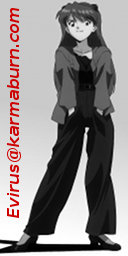1 November 2011: The Usagi Drop manga is different than otaku rage would have you believe
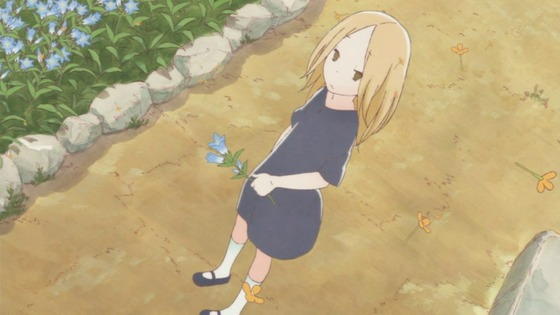
Daikichi's first impression of Rin is a recurring image.
Usagi Drop was one of the best shows from summer 2011, losing the top spot in my rankings only because of its brief 11-episode length. However, based on the outcry the original manga created, the anime's short run was its saving grace, due to the unspeakable horror of the manga's conclusion. Or so it goes.
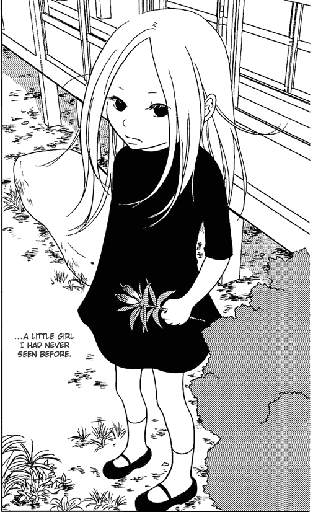
Daikichi sees Rin for the first time, manga version.
I've long learned of the otaku penchant for gross overreaction, so I took the time to read the entire manga myself—something I suspected many of its critics neglected to do. Based on my findings, I can understand why so many otaku reacted the way they did, but I personally had no issues with the manga's ending myself, possibly because I'm much less critical of anime and manga in general; I at least try not to group things into only two categories—AWESOME and HORRIBLE—there is a lot of stuff in that middle ground I enjoy, even if I don't necessarily enjoy all of it.
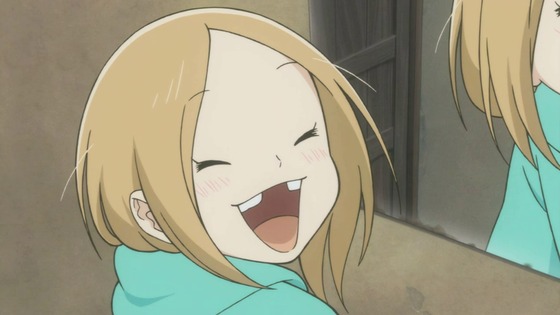
Here, the Usagi Drop anime ends.
The 11 Usagi Drop anime episodes duplicate the first 25 chapters of the 56-chapter manga almost scene for scene. The anime is very faithful to the source material. The anime also ends where it does because of the manga's timeskip. That's right, more than half of the Usagi Drop story occurs after the timeskip, so arguably the latter half is the "real" story which the first part merely sets up. At a minimum, a truculent reader should at least grudgingly acknowledge the second half is intended to be as important as the first half.
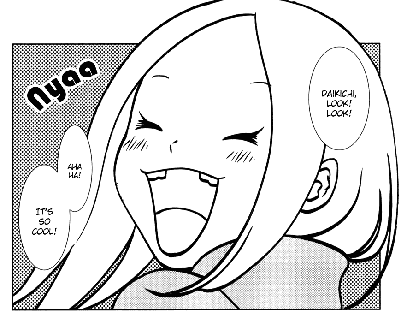
Here, the Usagi Drop manga is merely beginning.
Spoiler Warning: I won't explicitly discuss the manga events, but most readers will probably be able to easily guess the spoilers from context with little effort. When I first heard about the post-timeskip outrage, I compiled a mental list of likely spoilers based on what I knew about otaku and what I knew about Japan and what I had seen in other anime and manga. Sure enough, this list of possible rage-inducing outcomes included two of the spoilers that actually occurred in the manga, although to be fair, I was incorrect about a material detail about one of them and the one I was 100% correct on was the one I had already intuited from a scene in the anime before I had even heard about the entire controversy.
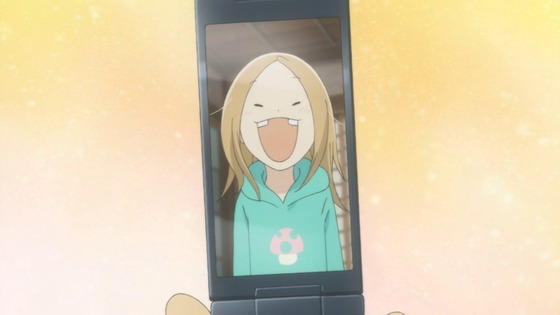
Rin shows off her missing teeth.
So why so much hostility towards the manga's ending? Frankly, I attribute it to one (or both) of two reasons. One, otaku might not be exposed to much western literature and theater if they spend most of their free time voraciously consuming manga and anime. Thus, their expectations as to what is appropriate or acceptable follow different conventions. Two, these conventions themselves are tailored in self-perpetuating otaku-friendly ways to be non-threatening. Yeah, most people angered by the Kannagi ex-boyfriend revelation were joking, but notice how none of the K-On! girls are permitted boyfriends either; even a supporting character requires plausible deniability—even in jest—when she is shown with a possible beau. This is not to say that strangers to manga and anime would not revile the Usagi Drop manga ending, but it's possible those with greater exposure to a variety of "acceptable" endings may give the title more latitude because they are more liberal with their expectations. Expectations are probably key here. For example, because its audience has different expectations, nobody bats an eye when Oedipus has sex with his mother and later puts out his eyes, and nobody cares when a Shakespeare tragedy concludes with a half-dozen dead bodies on the stage. And how many readers of the popular A Song of Ice and Fire fantasy novels are offended by all the rape, incest, and teenage brides?
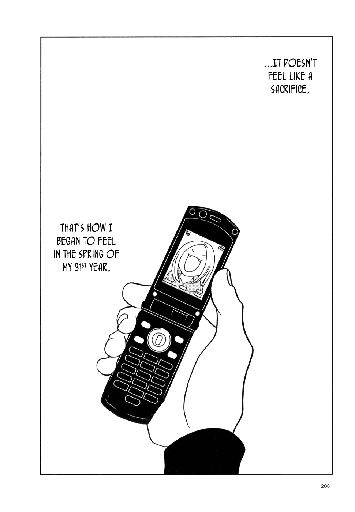
Tiny pictures are the way of love.
I do not claim it is improper for manga and anime fans to hold different expectations for these works, but I do feel that those embracing narrower allowances contribute to the apparently collective overreaction to the Usagi Drop ending. And I do think they overreacted, especially the ones who were offended by second- or third-hand reports about how it played out instead of investigating the matter themselves. I can understand not wanting to "stain" a cherished impression created by the first half of the story, but someone forcing himself to look away to avoid something he's predetermined to condemn as distasteful strikes me as amusingly immature.
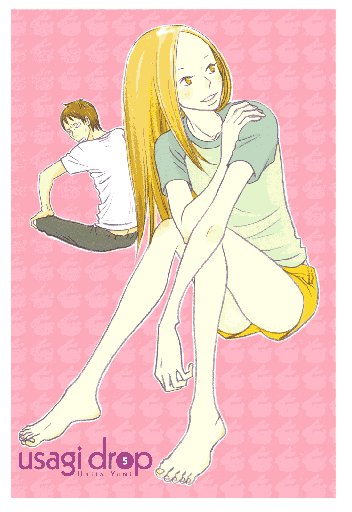
I forgot to mention timeskip Rin has legs that go up to her neck.
Yes, it turns out most of Usagi Drop is a teen drama, but it's not a bad teen drama unless you claim all teen dramas are bad as a matter of general principle. Guess what? After the timeskip, Rin is a teenage girl. And, like I said, since there are more chapters with Rin as a teenager than there are of Rin as a small child, Usagi Drop arguably is a teen drama. And it's not one of those teen dramas where nothing happens. There's kissing! There's sex! There's pregnancy! But there is also devotion and unrequited love.
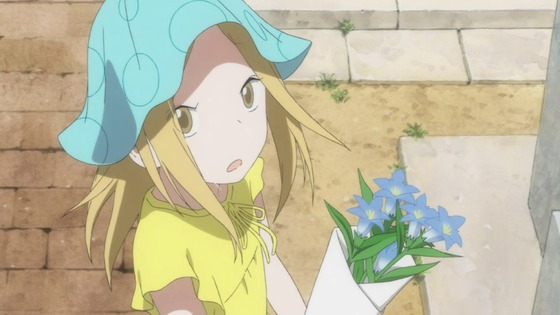
Rin pays her respects.
Frankly, none of this would even be possible were it not for two key elements established in the first half. First, Rin explicitly rejects Daikichi as a father when he broaches the subject. Second, six-year-old Rin is the sweetest, nicest, most well-mannered little girl in history, so Daikichi's parenting—as far as we are shown—consists almost entirely of having a job and being able to sign contracts. Instruction and discipline? Not so much.
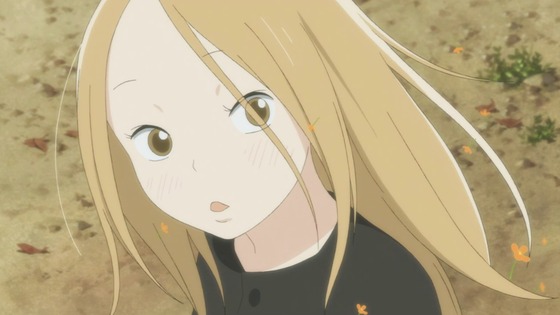
Daikichi remembers how he met Rin.
We also don't see much parenting with regard to Kouki. We know he needed more of it, since he was apparently quite a hellion, but Usagi Drop omits a lot of details. There are at least three really big incidents that occurred between the two arcs, but aside from oblique references to them, the reader remains entirely ignorant as to, you know, what happened.
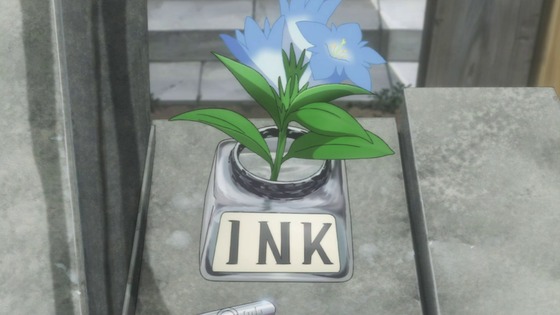
Rin's mother pays her respects.
I've probably said too much already, and if you can't figure out what the big deal is by now, you probably either don't know anything about Usagi Drop to begin with, or you weren't paying attention. If you have figured it out and still refuse to read the manga yourself because you're afraid of tarnishing the image formed by the anime, at least consider this: The first half of Usagi Drop is told from Daikichi's point of view. The second half is from Rin's and Kouki's points of view. This change is what makes the ending work for me.


